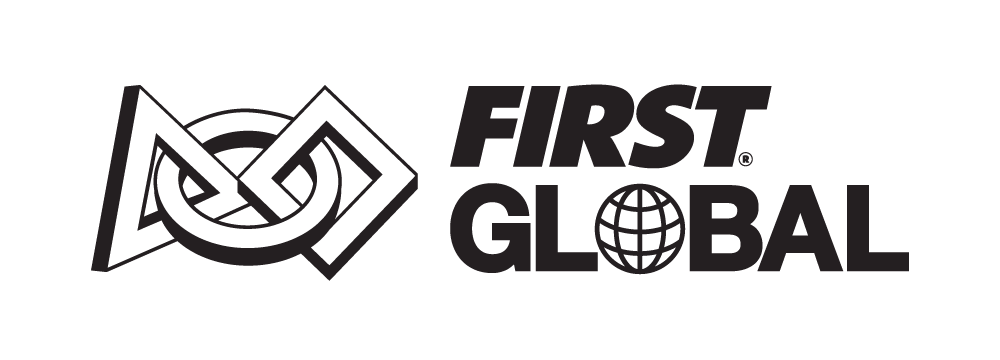THE 2021 FIRST GLOBAL CHALLENGE
27 JUNE – 28 SEPTEMBER 2021
VIRTUAL
2021 THEME: DISCOVER & RECOVER

Communities have all been touched by difficult challenges in various aspects of their lives as a result of the COVID-19 pandemic. However, this time has also shown that STEM provides critical answers to COVID-19 and other major events. In that spirit, the fifth edition of the FIRST Global Challenge focused on advancing new ways STEM can prioritize practical solutions and counter the effects of the problems youth and their communities continue to face across the world. Under the theme of “Discover & Recover,” the virtual Challenge consisted of three main components, enabling students to strengthen their technical and soft skills, as well as bring benefit to their communities.
176 COUNTRIES
represented by 177 teams, including a team of refugees.
57 ALLIANCES
tackled global challenges with their solutions.
38% FEMALE PARTICIPATION
including 32 female-majority or all-girl teams.
197+ ROBOTS AND NANOSATELLITES
created by teams.
2021 PLAYLISTS
THE CHALLENGE
TALKS AND TRAININGS
PODCAST
SEASON ACTIVITIES
The Solutions Challenge was the main component of the season, and provided an exciting opportunity for teams to turn their STEM skills into real-world application for the benefit of their countries. Under the theme of “Discover & Recover,” teams were tasked with identifying a pandemic-related problem in their community in the area of education, environment, health, or economy, and then creating a project to solve it using STEM within the span of the season.
Phase 1
Each team had six weeks to come up with a STEM solution to the problem they identified. Teams researched, brainstormed, planned, prototyped, and executed their solutions, going from an idea to a fully-thought-out and actionable plan.
Phases 2 & 3
Teams had two weeks to form alliances with teams from other continents working in the same category. Each alliance then had four weeks to work together to create one unified solution.
For the CubeSat Prototype Challenge, teams defined a mission of importance to their community and then used a provided Arduino-based kit to create their own CubeSat prototypes to provide a tangible solution to that local need. Teams designed, built, programmed, and tested their CubeSat prototypes, and then deployed them into the lower layers of Earth’s atmosphere. Detailed guidelines and educational resources were available to assist teams with this new technical component.
What is a CubeSat prototype?
CubeSats are a class of nanosatellite with a standardized size of 10 cm³. They are launched into space using rocket-powered launch vehicles, or can be deployed from the International Space Station. CubeSat prototypes are modeled after space-ready CubeSats, however instead of operating in space, they are launched into the lower layers of Earth’s atmosphere using methods such as high altitude balloons.
The Robotics Challenge was an opportunity for students to reinforce their robot designing, building, and programming skills. FIRST Global teams will used the components provided in a REV Robotics kit of parts to create solutions to four individual build tasks. Instead of assembling a single robot, teams completed these four build tasks, representing major components often found on FIRST Global robots. Detailed guidelines and educational resources were available to help teams with this component.
Drivetrain Delivery
Build a powered chassis structure to navigate a given path.
Intake Intrigue
Build a reversible intake to obtain control of an item on the ground, then release it.
Launcher Longshot
Build a device to propel an object through the air.
Climber Chaos
Build a mechanism to lift a weight off the ground.
“One message I would like to leave the participants and people at home with is — if there is one generation that gives people like me hope, the oxygen to just push through, it’s your generation. So please keep on pushing, and do not give up.”
—Ms. Joyce Msuya, Deputy Executive Director of the United Nations Environment Programme
2021 NATIONAL TEAMS
Teams not visible on the map: Andorra; Cayman Islands; Chinese Taipei; Hong Kong, China; Hope (Refugees); Kiribati; Marshall Islands; Samoa; Tonga.
“The FIRST Global Challenge changed me into a completely different person, someone who is confident in their abilities and can easily integrate into their society.”
–Mohamed, Team Tunisia 2021
“It is one of the best competitions worldwide because young people feel part of the implementation of new technologies for today. Through it we learn about the social and global problems that affect us and that with STEM we have solutions.”
–Fernanda, Team Honduras 2021
“I was not sure whether to pursue STEM careers because I didn’t believe I could do it, since in our community they believe it is for males. But after my experience with the 2021 FIRST Global Challenge, I made up my mind and I’m going for it.”
–Hellen, Team Botswana 2021
“The FIRST Global Challenge seriously changed my life in 2021. I thought 2021 was gonna be a bad year because of COVID-19, but somehow joining the FIRST Global Challenge made me explore, learn, and improve.”
–Nho, Team Cambodia 2021
IN THE NEWS
INSPIRATIONAL STORIES
LEADERBOARD
AWARDS & PRIZES

























